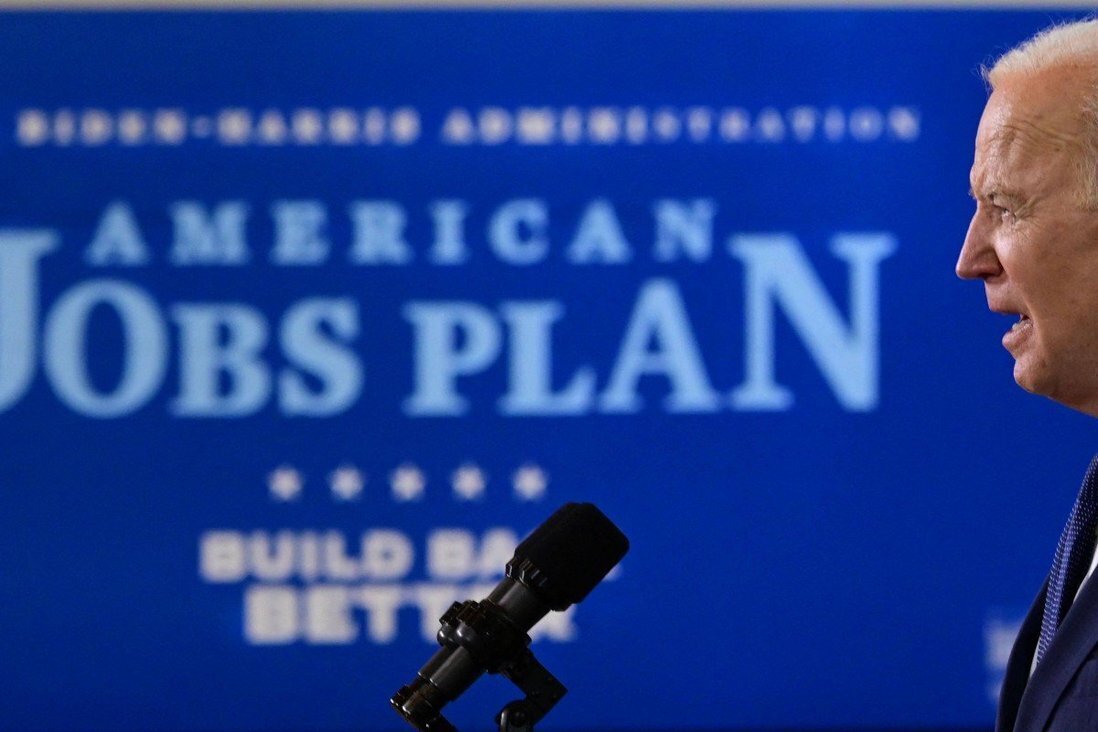 Table
modified by Hill Heat from the Committee for a Responsible
Budget
from the White House’s Fact
Sheet.
Table
modified by Hill Heat from the Committee for a Responsible
Budget
from the White House’s Fact
Sheet.
| 10-Year Estimate | |
|---|---|
| Invest in Transportation Infrastructure | $621 billion |
| Invest in Electric Vehicles (EV), including consumer rebates to purchase EVs, grants and incentives to build 500,000 new charging stations, and replacing and electrifying federal vehicle fleet | $174 billion |
| Modernize bridges, highways, roads, and main streets in critical need of repair | $115 billion |
| Modernize public transit | $85 billion |
| Improve passenger and freight rail service | $80 billion |
| Improve infrastructure resilience by safeguarding critical infrastructure and services, defending vulnerable communities, and maximizing resilience of land and water resources | $50 billion |
| Improve airports | $25 billion |
| Establish dedicated fund for beneficial projects to regional or national economy | $25 billion |
| Improve road safety and establish Safe Streets for All program | $20 billion |
| Establish program to reconnect neighborhoods and ensure new projects increase opportunity | $20 billion |
| Improve ports and waterways | $17 billion |
| Other spending | $10 billion |
| Invest in Domestic Manufacturing, Research & Development, and Job Training Initiatives | $590 billion |
| Provide additional funding for domestic manufacturing, investing in capital access programs, supporting modernizing supply chains, and creating a new financing program to support debt and equity investments | $52 billion |
| Provide additional funding to the National Science Foundation | $50 billion |
| Establish Department of Commerce office to monitor domestic industrial capacity and to fund investments in the production of critical goods | $50 billion |
| Provide funding for semiconductor manufacturing and research | $50 billion |
| Provide funding for workforce development infrastructure and worker protection | $48 billion |
| Support clean energy manufacturing with federal procurement | $46 billion |
| Provide funding to upgrade research infrastructure in laboratories | $40 billion |
| Establish Dislocated Workers Program and invest in sector-based training | $40 billion |
| Provide additional funding for climate change research and development | $35 billion |
| Provide funding for community-based small business incubators and innovation hubs | $31 billion |
| Provide additional funding for research and development to spur innovation and job creation | $30 billion |
| Protect against future pandemics through medical countermeasures | $30 billion |
| Establish regional innovation hubs and Community Revitalization Fund | $20 billion |
| Create centers of excellence that serve as research incubators for HBCUs and MSIs | $15 billion |
| Provide additional funding to National Institute of Standards and Technology (NIST) | $14 billion |
| Provide funding for workforce development in underserved communities | $12 billion |
| Provide funding for research and development at HBCUs and other MSIs | $10 billion |
| Provide funding for enforcement of workforce protections | $10 billion |
| Establish Rural Partnership Program | $5 billion |
| Other manufacturing investments | $2 billion |
| Expand Home Care Services and Provide Additional Support for Care Workers | $400 billion |
| Expand access to long-term, home and community-based care services under Medicaid and extend the Money Follows the Person program | $400 billion |
| Clean Energy Tax Credits | ~$400 billion |
| Improve Housing Stock, Modernize Schools and Child Care Facilities, and Upgrade VA Hospitals and Federal Buildings | $328 billion |
| Build over a million energy efficient housing units and eliminate certain zoning & land use policies | $126 billion |
| Provide direct grants to upgrade and build new public schools, with an additional $50 billion leveraged through bonds | $50 billion |
| Provide funding to improve public housing system | $40 billion |
| Establish Clean Energy & Sustainability Accelerator | $27 billion |
| Establish Child Care Growth and Innovation Fund and provide tax credits to encourage businesses to build child care facilities | $25 billion |
| Incentivize the building or rehabilitation of over 500,000 homes for low- and middle-income homebuyers with a Neighborhood Homes Investment Act (NHIA) tax credit | $20 billion |
| Modernize VA hospitals and clinics | $18 billion |
| Improve community college facilities and technology | $12 billion |
| Modernize federal buildings through bipartisan Federal Capital Revolving Fund | $10 billion |
| Invest in Broadband, Electrical Grid, and Clean Drinking Water | $311 billion |
| Purchase 100% carbon-free power for federal buildings. | |
| Establish an Energy Efficiency and Clean Electricity Standard (EECES) of 100% carbon-free power (including nuclear and hydropower) by 2035 | |
| Provide funding to build high-speed broadband, reduce the cost of broadband internet service, and promote transparency and competition | $100 billion |
| Invest in power infrastructure | $100 billion |
| Upgrade and modernize drinking water supplies through grants and low-cost flexible loans to states, Tribes, territories, and disadvantaged communities | $56 billion |
| Replace all lead pipes and service lines | $45 billion |
| Provide funding to monitor PFAS substances in drinking water and invest in rural small water systems & household well & wastewater systems | $10 billion |
| Plug orphan oil and gas wells and cleaning up abandoned mines | $16 billion |
| Remediate and redevelop Brownfield and Superfund sites | $5 billion |
| Establish the Civilian Climate Corps | $10 billion |
| Total | ~$2.65 trillion |